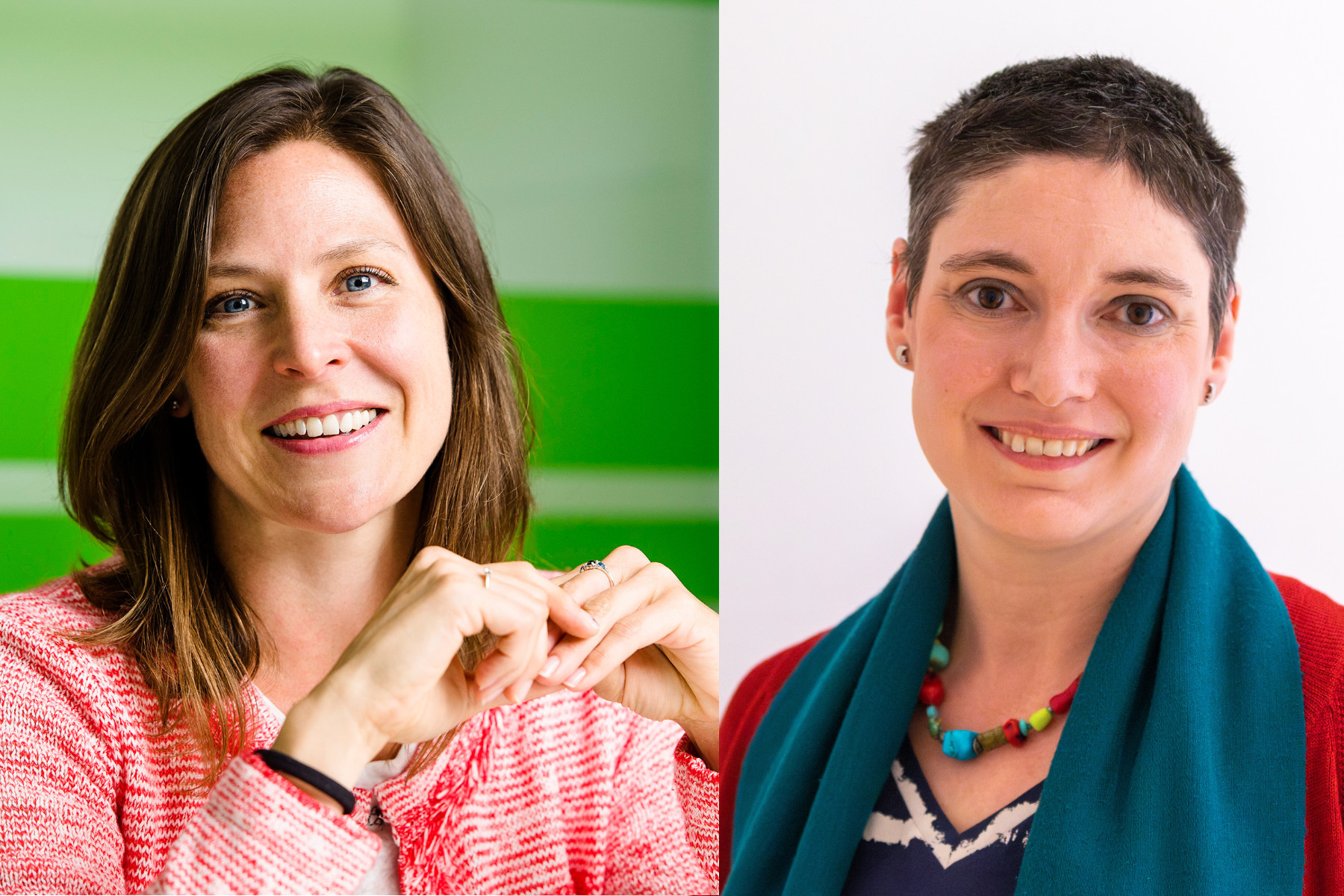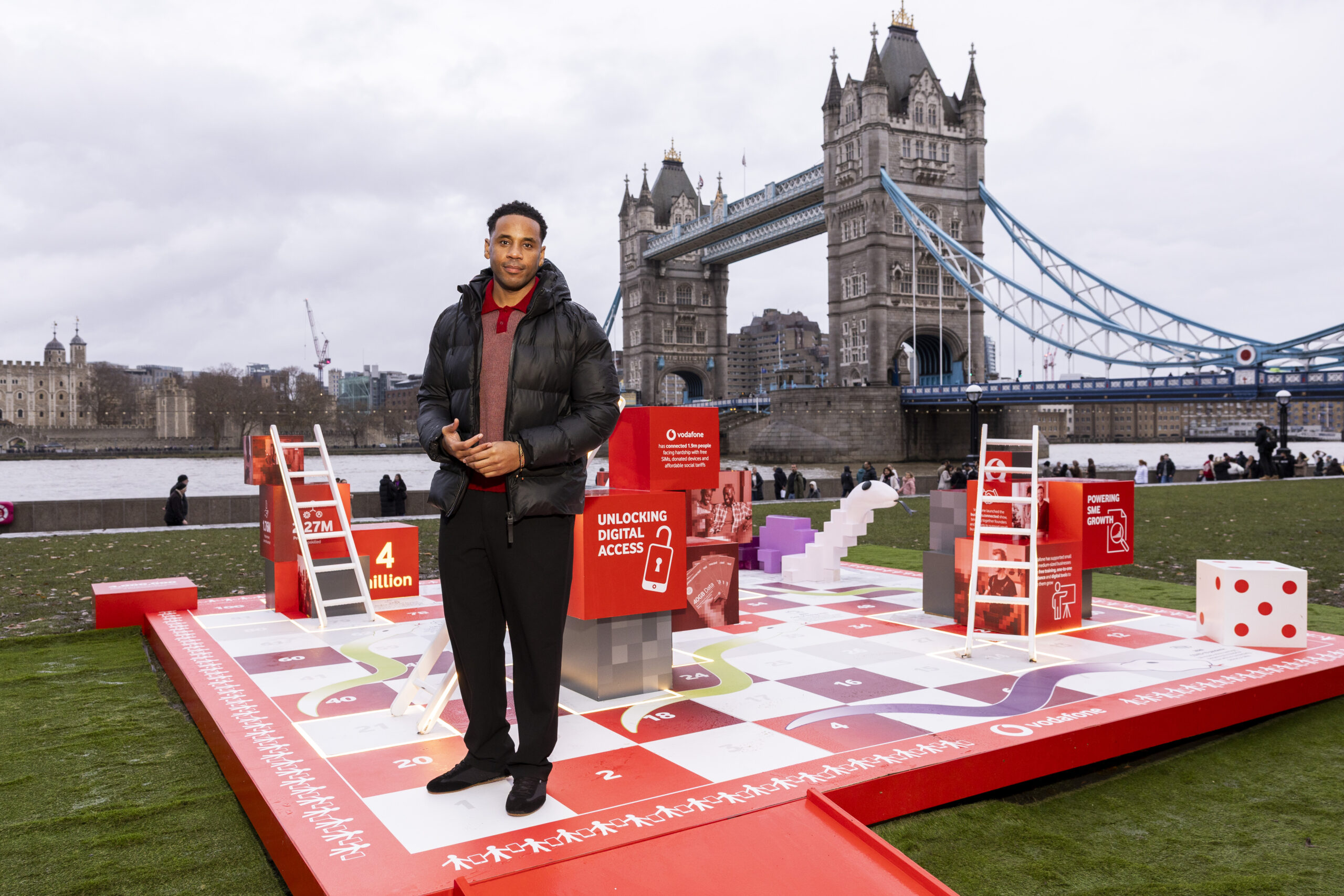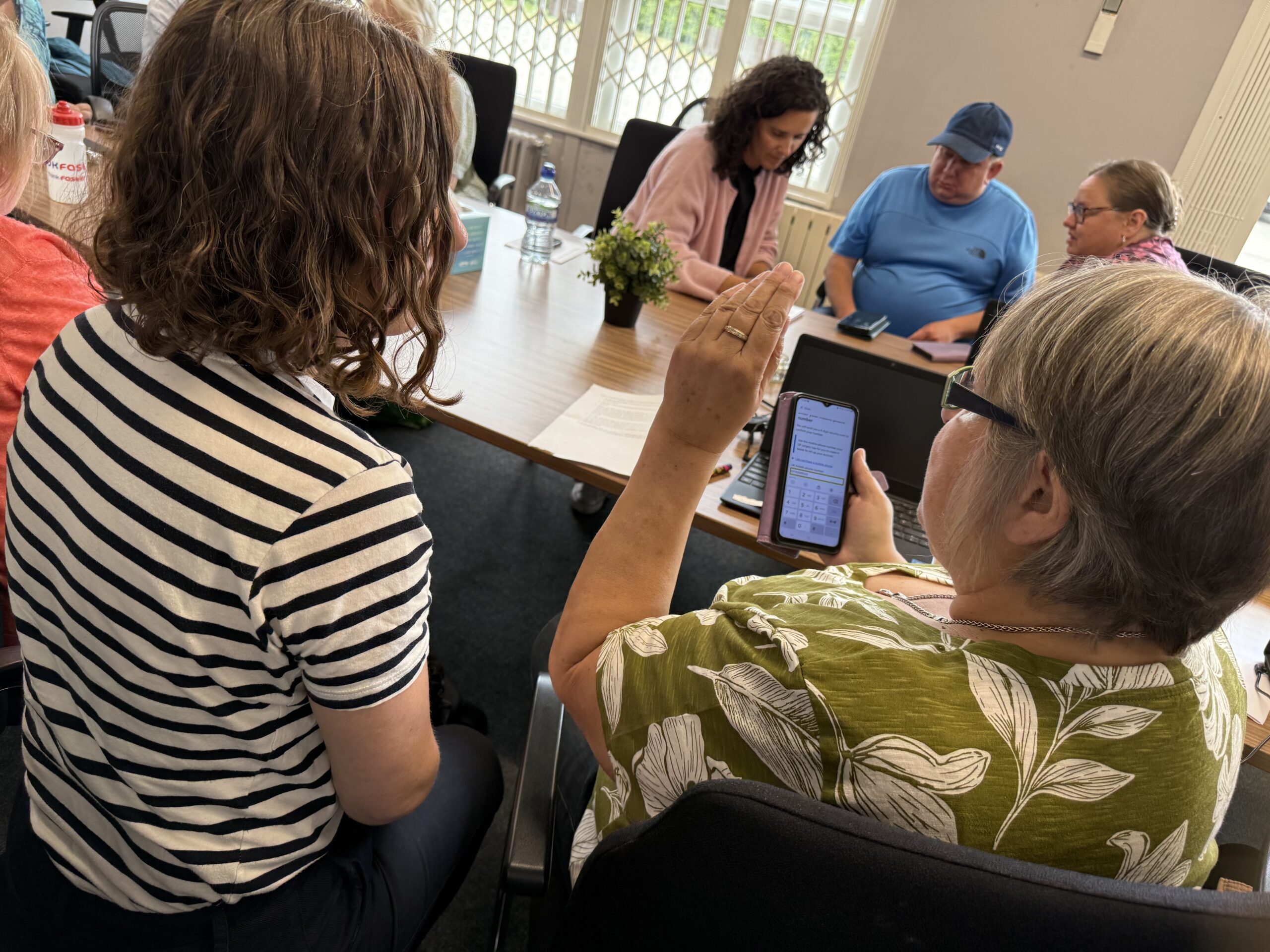Vodafone News UK recently sat down with Helen Barnard, Director of Policy, Research and Impact at Trussell, and Catherine Russell, Vodafone UK’s Head of Sustainable Business, to discuss public-private cooperation, the importance of corporate communications, and more.
Against the backdrop of a new UK Government, and recent figures showing more than nine million Britons are currently vulnerable to needing a food bank, there is a lot of ground to cover – as Trussell’s latest publication, The Hardship Times, suggests.
Here’s what the pair had to say…
How does the digital divide play into the wider debate around UK poverty, and what are the factors that drive it?
Catherine Russell: Before getting into its impact on poverty, it’s probably worth explaining exactly what the digital divide is. In short, it is what we call the gap that exists between people that have internet access and people who don’t. This doesn’t just represent an unequal access to connectivity, but also access to everything that these technologies enable.
That could include online learning resources, the opportunity to stay in touch with loved ones, essential support or the ability to complete everyday tasks. Basically, everything that many of us regularly take for granted.
This takes on greater significance when you realise that the gap itself is often caused by individuals not being able to afford connectivity or the devices needed to get online.
In turn, excluding them from some of the most basic parts of living a sound, financial life, whether that’s updating their Universal Credit journal, searching for work, finding accommodation or applying for a bank account. All of which are tasks that, today, have become easier, quicker and often cheaper to complete online.
Helen Barnard: Once viewed as a ‘nice to have’, internet access is now necessary for most parts of life. It plays a key role in human connection, helping overcome the isolation that is often faced by people that are struggling to get by.
Around one in six (16%) people referred to a food bank in the Trussell network have no access to the internet at all. Less than half (46%) have access via their mobile phone network, and even fewer (42%) have internet access in their homes.
The digital isolation we see is driven by people having incomes too low to afford the essentials, including the internet. Currently, 70% of people referred to food banks in our network are in receipt of Universal Credit, while nine out of 10 on Universal Credit say they cannot afford the essentials.
Not being able to access the internet can exacerbate poverty as, often, the best financial offers and access for goods and services are found online – as are application routes for additional support, grants and employment opportunities.
In addition, Trussell found that people referred to food banks who do not have access to the internet are less likely to have applied for, or received, any local crisis support (23%) compared to people with access (28%).
Mind the connectivity gap: Vodafone and Good Things Foundation highlight digital divide
Five million people are currently missing out on 5G in the UK, creating a ‘connectivity gap’ that threatens to widen the existing digital divide between some rural or deprived communities and the rest of the country.
What caught your attention in the King’s Speech and why? What would you like to see from this UK Government?
Catherine: From a telco perspective, the mentions of cybersecurity, digital information and planning and infrastructure resonated most. And, of course, Labour’s manifesto pledge to make a “renewed push” for full gigabit broadband and nationwide 5G by 2030 is something we were very encouraged to see here at Vodafone.
After all, we see our proposed merger with Three UK as a once-in-a-generation opportunity to transform the UK’s digital infrastructure, by enabling an £11 billion investment into a 5G Standalone (5G SA) network that would reach more than 99% of nation’s population by 2034. This would mean parity of connectivity for everyone, including people that are most disadvantaged.
Helen: The King’s Speech set out some vital steps towards a future where everyone can afford the essentials. The two main positives for this were plans to strengthen workers’ rights and renters’ rights.
We know one in five people referred to food banks in our network are in work. However, insecure, low-paid and inflexible work traps people in hardship. So, we’re pleased to see one of Trussell’s manifesto asks being brought forward.
New rights to regular working hours (tackling zero-hours contracts), improving sick pay and parental leave provision, better protection from unfair dismissal, ensuring protection is available from day one, and backing this with a new single body for enforcement – these are all steps which should mean work provides better protection from hardship.
Likewise, the reintroduction of robust legislation protecting private renters is a relief. One in three people referred to Trussell’s community of food banks are either homeless at the point of referral or have experienced homelessness in the past year, with one in 10 having been evicted.
We’ve seen other positive steps from the UK government, such as extending the Household Support Fund and a first step towards a more supportive social security system, by introducing a Fair Repayment Rate in Universal Credit.
This will reduce the amount that can be taken off social security payments to repay debts – often to the DWP itself for things like loans to cover the five-week wait for a first payment, but also to third parties like utility companies.
At Trussell, we’ve been calling for this change for years. For a person over 25, facing the maximum rate of deductions, that’s nearly £40 more a month in their pocket than they’d have otherwise. The government estimates people will gain around £420 a year on average. This isn’t the full solution to ensure people can afford essentials, but it’s certainly a step in the right direction.
We now need the government to build on this by updating the social security system so it protects people from going without the essentials, and improving employment and other support for disabled people and carers.
Digital divide: ‘People shouldn’t have to live without connectivity’
Nicki Lyons, Vodafone’s UK Chief Corporate Affairs & Sustainability Officer, went to Finsbury Park in North London to meet charity partner, The Trussell Trust, as it launched its 'Guarantee our Essentials’ campaign on Tuesday.
Why is public-private collaboration so important for society?
Catherine: Obviously, every industry is different. But, generally speaking, strong public-private cooperation is the best way to reach a more positive outcome for the general public.
The public sector can provide incentives to private companies, including social value requirements, that encourage investment. In return, the private sector brings innovation to the table, which can ultimately improve how efficiently public services are run.
You see this a lot in the telecoms sector, where governments rely on private infrastructure to deliver on their connectivity aims and wider ESG targets.
And, of course, the third sector plays a vital role here too. By facilitating private partnerships that have a public mission, they often help to marry progress with purpose. Therefore, charities like Trussell are uniquely placed to help drive real societal change.
Helen: Tackling the big challenges facing the UK, especially poverty and hardship, requires action from across the whole of society.
There is crucial expertise and skills in the private sector as well as across the public sector and civil society. Tackling poverty requires us to design markets which enable low-income consumers to access essential goods and services both easily and at affordable prices.
Employers can change people’s lives by providing secure, decently paid work, with chances to progress and the flexibility and support needed by disabled people, carers and parents to access those opportunities.
Many businesses invest in their local communities, helping to build the ‘social infrastructure’ which creates connections and support networks that protect people, connects them to services, and helps people recover from difficult life events. If we are to end hunger in the UK, everyone has a part to play.
The Trussell Trust: Telling the stories behind the statistics
As a partner to the Trussell Trust since 2021, Vodafone attended the charity’s ‘Pathways for Change’ event to hear how the anti-poverty charity’s work goes so much further than just the facts and figures.
What role does communication play in tackling big societal issues, such as hunger, hardship and social isolation?
Catherine: As in most areas of life, clear and concise communication is central to tackling these big societal issues. Whether you’re defining the problem, setting out the actions being taken or measuring progress down the line, communication is everything.
I think this is why our everyone.connected campaign has been so successful. Firstly, it lays out a clear mission to help four million people and businesses cross the digital divide by 2025. Next, it defines how we’ll get there, by: donating connectivity and tech; providing affordable, accessible services; and upskilling businesses and communities.
Then, finally, we regularly update our audiences on how we are tracking against these goals, through various pieces of content on our external channels.
This last point is particularly important, since it allows us to amplify the work of our incredible strategic charity partners – Trussell, Good Things Foundation and NSPCC – and bring in the individual stories of people most affected by the issues at hand.
Trussell is great at this too, regularly giving its lived experience partners a platform to talk about hunger and hardship in an honest, engaging and highly impactful way.
Helen: Effective communication is at the heart of achieving change. Every step forward, every policy change, and every improvement in people’s lives has come about because its advocates were able to successfully convince enough of the public and policymakers that it was necessary and would bring about positive progress.
We have to be able to paint a compelling picture, not only of the current situation and the problems we need to solve, but of a different and better future. We have to show that there is the possibility of change if we want to build support for the steps that will end the need for food banks in the UK.
In recent years, new research has given us a much better understanding of how to communicate effectively about social and economic issues and their solutions. In Trussell’s advocacy, we work hard to understand the perspectives of both members of the public and policymakers from across the political spectrum, so that we can work together effectively to create change.
That’s vital not only to make policy change happen but, crucially, to sustain it. Because we want to create solutions that will stand the test of time and will rest on a solid bedrock of public support, which lasts through different governments.
Fear, uncertainty and doubt: why some people don't have digital skills
No matter why people don’t have digital skills, the Good Things Foundation - one of Vodafone's everyone.connected charity partners - helps people learn the basics, so they can make the most of the online world.
Talk us through some of the projects that Vodafone and Trussell work together on
Catherine: At Vodafone, we are pretty adept at opening doors and offering more than just a platform for other companies who choose to work with us. We really want proper partnership – we want to do something significant together, where we share a strategic goal – and I think organisations like that about us.
Which is why, when we had the opportunity to partner with Trussell in 2021, it was a bit of a no brainer since we both want to help the most vulnerable in society.
Since then, Trussell has become a key part of our everyone.connected campaign, helping to distribute free SIMs loaded with calls, texts and 40GB of data to people visiting food banks or calling their Help through Hardship helpline.
This is vital given how essential a part of life connectivity has become in our digitally-driven society. Ultimately, by working with Trussell, we have a much better opportunity to reach people facing digital exclusion.
Helen: The launch of everyone.connected in 2021 saw the beginning of Trussell’s long-standing partnership with Vodafone UK, which has the central aim of tackling digital exclusion.
Vodafone began by donating SIMs to people facing digital exclusion at Trussell’s community of food banks across the UK. Three years on, Trussell has distributed almost 200,000 Vodafone SIMs, through a number of food banks in our network, and to people calling Help through Hardship – a helpline established for people struggling to afford the essentials.
Trussell’s relationship with Vodafone has now evolved into a strategic partnership. As well as donating connectivity to people facing hardship Vodafone is supporting Trussell by raising awareness of its mission to end the need for food banks in the UK, lobbying for change, and encouraging its employees to get involved through volunteering and fundraising.
For example, Vodafone actively supports the ‘Guarantee our Essentials‘ campaign, launched by Trussell and the Joseph Rowntree Foundation, which calls on the Government to increase Universal Credit so the basic rate at least covers the cost of life’s essentials.
At Trussell, we are delighted to see this partnership go from strength to strength, culminating in our award for CSR Initiative of the Year, at the Mobile Industry Awards in October.
Sir Peter Wanless on bringing young people’s voices into the online safety conversation
Vodafone has been working with the NSPCC since 2023. In that time, the organisations have worked on everything from a phone safety toolkit to a safe gaming festival. We sat down with outgoing CEO, Sir Peter Wanless, to hear why including children’s voices has been so central to all of this.
What’s one thing you would change if you were the UK’s Prime Minister for a day?
Catherine: I’d advocate for more support for all corporates to become a positive part of the communities they serve so that, together with the public and third sectors, we can collectively make the world a better place. After all, I believe that big corporates can be a force for good, and the advent and growth of social value requirements in public sector procurement is testament to that.
Helen: I’d commit to introducing an Essentials Guarantee into Universal Credit so that the support people receive from social security always, at least, covers the cost of the essentials we all need to get by. That is the most important step towards a future where no one needs to turn to a food bank to survive.
Find out more about Trussell’s ‘Guarantee our Essentials‘ campaign, and stay up to date with the latest news from Vodafone by following us on LinkedIn and Twitter/X, as well as signing up for News Centre website notifications.










